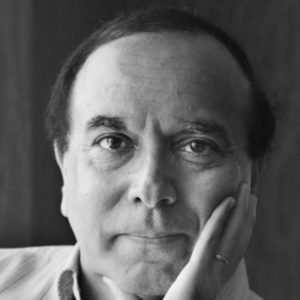By Raffi Bedrosyan
The never-ending manipulations and power games at the Istanbul Patriarchate took a turn for the worse this week. In 2008, the Istanbul Patriarch Archbishop Mesrob Mutafyan was stricken with incurable dementia, incapacitating him into a vegetative state. The cleric next in line at the Patriarchate, Archbishop Aram Atesyan was appointed the Acting Patriarch at that time, with the expectations that unless Patriarch Mutafyan recovers miraculously, elections should be held to decide a successor. For the past nine years, Acting Patriarch Atesyan resisted all attempts of the Istanbul Armenian community, other Patriarchate clerics and even the Echmiadzin Catholicosate, to hold the elections. Finally in March 2017, Archbishop Atesyan relented, allowing the Religious Council of the Patriarchate to start the election process, which elected Archbishop Bekjian from the Diocese of Germany as “locum tenens,” a caretaker cleric until a new Patriarch is elected to replace the ailing Patriarch Mutafyan and the Acting Patriarch Atesyan.
Both Atesyan and Bekjian were supposed to be candidates in the elections, along with four other eligible clerics. But now, following a meeting with the Turkish Minister of Interior and a letter received from the Istanbul Governor, the Religious Council of the Istanbul Patriarchate has declared that there will be no elections and Archbishop Atesyan will continue serving as Acting Patriarch until Patriarch Mutafyan dies. Archbishop Bekjian has resigned and is on his way back to Germany. How is all this possible?
It is possible because Archbishop Atesyan is a favorite of the Turkish government and the Turkish government returns the favor by calling null and void the election process and the selection of the “so called” or “alleged” locum tenens Archbishop Bekjian to oversee the election process, even though these are all spelled out in the legal authority of the Istanbul Patriarchate and the Lausanne Treaty defining the legal rights of the minorities to freely elect their religious leaders. But however the government, or more appropriately, the leader of the government President Erdogan interprets the laws, that is what counts. Archbishop Atesyan is ‘proud to call President Erdogan as my brother’. Archbishop Atesyan was a fierce critic of Germany for passing the Armenian Genocide resolution in June 2016.
Archbishop Atesyan wished Erdogan success in starting the Afrin invasion in Syria, killing Kurdish (and some Armenian) civilians. It is natural that the Turkish government will interfere to the benefit of an Armenian religious leader so much in line with its priorities.
I have had two occasions to communicate directly with Archbishop Atesyan. First was when I planned to give a concert at the newly reconstructed Surp Giragos Armenian Church in Diyarbakir, during the Centennial Commemoration of the Armenian Genocide in April 2015. As part of the concert program, in addition to my piano performance of Armenian composers, I had proposed to invite a well-known Armenian and a Kurdish opera singer to present songs of Komitas, a noted victim of the Genocide. Archbishop Atesyan opposed the idea of the concert in “his church” and suggested that I hold the concert somewhere else in Diyarbakir. At the end, the concert did take place in the church of course, in the presence of more than a thousand attendees, including elected officials, local Kurds and Turks, but most significantly, hundreds of hidden Armenians. Instead of the two singers, I ended up playing the Komitas works in the church myself, so meaningful and symbolic, hundred years after the Genocide.









